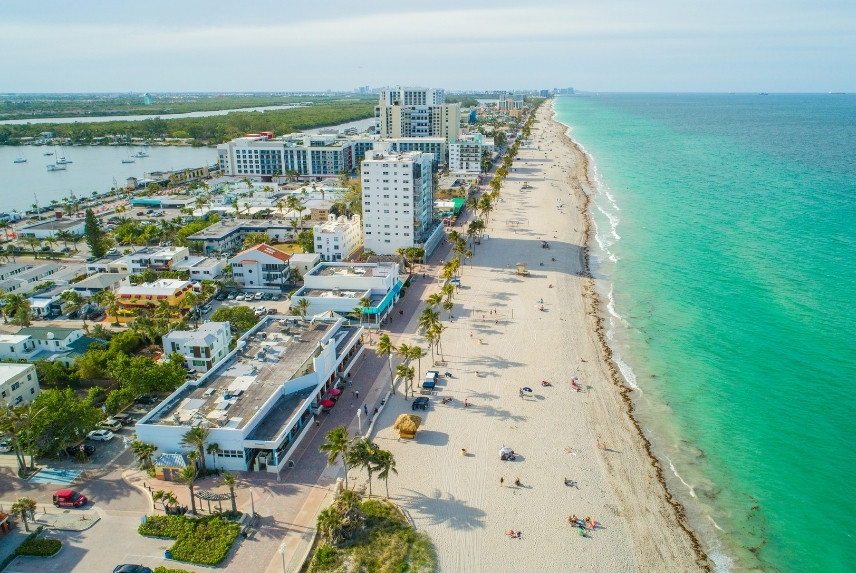Working With an Amelia Island Probate Lawyer/Attorney

If you become responsible for managing a family member’s estate after they pass away, you’ll likely have many questions about proceeding with the matter. For instance, you may wonder about paying their mortgage or accessing their bank accounts, but situations often extend beyond tending to the personal belongings of the deceased.
An Amelia Island probate lawyer/attorney from Montague Law will help you navigate probate law after a loved one passes away. Our law firm has more than ten years of experience providing legal services to residents in Amelia Island, FL. We understand the complexities of probate law for the state of Florida, and we are here to protect your interests during the process.
Please give our legal team a call at 904-234-5653 to request a consultation for probate.
What Is Probate Law?
Unfortunate situations often arise after someone passes away, even if the deceased left a well-structured estate plan for their loved ones to follow. Perhaps someone contests the actions of the estate trustee or representative, or the deceased’s creditors make a new claim to collect debts. It’s even possible for someone to question the deceased’s mental state to invalidate the estate plan.
These unforeseen consequences often lead to probate or the legal process that:
- Proves the validity of a person’s will in court
- Identifies and inventories the property of the deceased
- Pays taxes and debts on behalf of the deceased
- Appraises the deceased’s property
- Distributes the rest of the property to beneficiaries according to the person’s will or state law
Probate deals primarily with distributing assets, with or without a will, to beneficiaries and tending to a person’s financial responsibilities after death. Paperwork and court appearances from an Amelia Island probate lawyer/attorney are standard aspects of the probate process.
At Montague Law, our legal team has years of experience helping residents in the area understand probate law while going through the process, regardless of their cases’ complexity.
Types of Probate Law in Florida
In Florida, probate falls into three categories:
- Formal Administration: Otherwise known as “formal probate,” this process is the standard form of probate that most probate attorneys deal with in Florida. The proceedings for Amelia Island residents occur in the local Circuit Court of Nassau County.
The process begins when the will’s executor requests an appointment to become the estate representative. The will’s beneficiaries receive a written notice and the opportunity to submit formal objectives, if necessary.
- Summary Administration: This probate process is for decedents with assets totaling $75,000 or less or if the person has been deceased for more than two years. Filing a Petition for Summary Administration initiates this process, and a surviving spouse or beneficiary must sign the document to expedite the probate.
- Disposition Without Administration: Under the Disposition Without Admission, the probate hearing does not occur because the deceased individual doesn’t have any real estate or assets of substantial value to distribute with the assistance of a formal court hearing.
Why Use a Nassau County Probate Lawyer/Attorney?
Probate law in Florida is complicated, and attempting to navigate it alone without legal assistance may not be in your best interest. Working with an Amelia Island probate lawyer/attorney from Montague Law will streamline the process and make it less stressful for you and your loved ones.
Our legal team has an intricate understanding of Florida probate law. With our years of experience in the field, we can handle various aspects of asset distribution, including:
- Identifying assets within the estate
- Filing an Inventory and Appraisal of the known assets
- Paying the estate’s taxes, debts, and remaining financial liabilities
- Distributing the leftover inventory after completing all other processes
The Probate Process of Florida

In Florida, once someone passes away, their name must come off of all of their assets. Anything owned jointly, such as a home with a spouse, will either have a beneficiary designation or won’t have to go through probate, as long as the assets are payable upon death.
The person’s other assets, however, will go through the following legal process, which will take 6 to 12 months to complete:
- File the Will: If the decedent has a will, the person responsible for it must file the document with the Florida Circuit Court for Nassau County.
- Submit the Petition for Administration: Next, they will need to file the Petition for Administration to request to probate the will formally.
- Select a Personal Representative: Once the will is with the courts, it’s necessary to appoint someone to be the estate’s personal representative. The individual will be responsible for collecting and distributing the decedent’s assets.
- Determine the Will’s Validity: Some wills are ironclad while others are not. The court will review the document to ensure that it complies with Florida law, including appropriate signatures, notary markings, and filings without undue influence.
- Settle the Finances: The representative will account for the deceased person’s estate assets by documenting all disbursements and saving receipts. After they account for the assets, they will provide all creditors and beneficiaries a 30-day notice to file a dispute.
- Closing: After the 30-day notice, a probate court hearing will occur. When the accounting is complete, and all interest parties receive their portion of the estate, the personal representative will submit a petition to discharge or close the estate.
The process above is a simplified summary of the probate process in Florida. No two probate cases are precisely the same, and unforeseen issues can arise. Montague Law has the skills and experience to help you walk through the entire probate process, no matter how complicated things become when someone passes away.
What Happens When Someone Passes Away without a Will in Florida
Unfortunately, some people pass away without leaving behind a will. When that happens in Florida, their assets will become “interstate,” meaning a separate process is necessary for determining which assets are part of the deceased’s estate and how to distribute them.
Below are some key points of interstate law:
- A living spouse will receive the decedent’s entire estate when the deceased has no surviving children, parents, grandparents, or other relatives.
- A living spouse will receive the decedent’s entire estate if the spouse shares at least one living child with the deceased.
- A living spouse with relatives unrelated to the decedent will receive half of the estate, and the other half will go to their descendants.
- An unmarried decedent’s immediate family members will receive their entire estate if the deceased person is unmarried.
- The parents of the deceased will receive the decedent’s assets if they have no immediate relatives.
- The state of Florida will seek distant heirs according to interstate law if someone dies without close relatives, spouses, or immediate family.
About Probate Trusts
Trusts also fall under probate law to ensure that the trustee handles the assets according to Florida law and the settlor’s wishes. The goal of a probate trust is to allow families to quickly assess a person’s assets upon death and handle them accordingly. The trustee has an obligation under law to adhere to the following duties:
- Provide annual accounting reports to each beneficiary
- Maintain tax compliance
- Act in the duties of good faith and impartiality
- Pay the settlor’s debts
- File estate tax returns when necessary
Our team at Montague Law has extended experience in performing these duties. We will ensure you follow all legal processes completely.
About Probate Litigation
If someone passes away and leaves a will, someone could contest it. Florida residents often use probate litigation to challenge the contents of the document in court formally.
Below are common legal issues that surviving family members dispute in probate court in addition to contesting a will:
- Creditor disputes
- Issues with legal guardianship of minors
- Removal of a beneficiary
- Problems with a personal representative
- Concerns about trusts
In Florida, people usually consider probate litigation after receiving a Notice of Administration. The document that interested parties receive formally notifies them of the decedent’s death, the filing of the will in probate court, and the deadline to object to probate proceedings. Missing the 30-day deadline bars people from contesting the will forever.
Montague Law is no stranger to protecting our clients’ best interests in court, especially when it comes to probate litigation. We have ample experience representing various parties, including trustees, beneficiaries, and personal representatives.
About Estate Planning and Probate
Estate planning for probate deals with filing critical documents stating where property and assets will go upon death. Estate planning documents include a will, living will, living trust, and health care directive.
It’s not enough to create the documents; you should hire a knowledgeable estate planning lawyer, like those practicing with Montague Law, to review and account for financial changes periodically. Mistakes with estate planning could lead to thousands of dollars in taxes and creditor claims.
Don’t Hesitate to Contact An Amelia Island Probate Lawyer/Attorney Today
If you have questions or concerns about probate law in Florida, let Montague Law and our legal professionals address them. We proudly serve residents in Amelia Island, FL, and will guide you through every step during the probate process while protecting your best interests and rights. Call 904-234-5653 to book your consultation today.
Let an Amelia Island Estate Planning Attorney Help
Do you have more questions about estate planning? Our team at Montague Law can provide you with the answers you want. You can easily contact an Amelia Island estate planning attorney by calling us at 904-234-5653. Allow us to walk you through each step of this legal process.